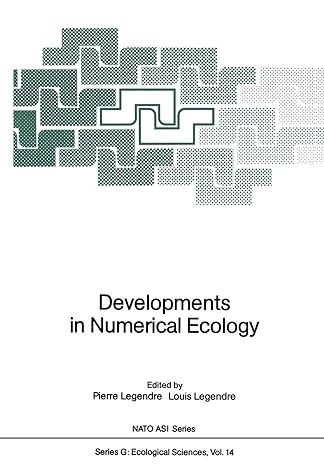Go back


Trees And Hierarchical Structures Proceedings Of A Conference Held At Bielefeld FRG Oct 5 9th 1987(1990 Edition)
Authors:
Andreas Dress, Arndt Van Haeseler

Cover Type:Hardcover
Condition:Used
In Stock
Shipment time
Expected shipping within 2 DaysPopular items with books
Access to 30 Million+ solutions
Free ✝
Ask 50 Questions from expert
AI-Powered Answers
✝ 7 days-trial
Total Price:
$0
List Price: $54.99
Savings: $54.99(100%)
Solution Manual Includes
Access to 30 Million+ solutions
Ask 50 Questions from expert
AI-Powered Answers
24/7 Tutor Help
Detailed solutions for Trees And Hierarchical Structures Proceedings Of A Conference Held At Bielefeld FRG Oct 5 9th 1987
Price:
$9.99
/month
Book details
ISBN: 3540524533, 978-3540524533
Book publisher: Springer
Get your hands on the best-selling book Trees And Hierarchical Structures Proceedings Of A Conference Held At Bielefeld FRG Oct 5 9th 1987 1990 Edition for free. Feed your curiosity and let your imagination soar with the best stories coming out to you without hefty price tags. Browse SolutionInn to discover a treasure trove of fiction and non-fiction books where every page leads the reader to an undiscovered world. Start your literary adventure right away and also enjoy free shipping of these complimentary books to your door.
Book Summary: The "raison d'etre" of hierarchical dustering theory stems from one basic phe nomenon: This is the notorious non-transitivity of similarity relations. In spite of the fact that very often two objects may be quite similar to a third without being that similar to each other, one still wants to dassify objects according to their similarity. This should be achieved by grouping them into a hierarchy of non-overlapping dusters such that any two objects in ~ne duster appear to be more related to each other than they are to objects outside this duster. In everyday life, as well as in essentially every field of scientific investigation, there is an urge to reduce complexity by recognizing and establishing reasonable das sification schemes. Unfortunately, this is counterbalanced by the experience of seemingly unavoidable deadlocks caused by the existence of sequences of objects, each comparatively similar to the next, but the last rather different from the first.
Customers also bought these books
Frequently Bought Together
Top Reviews for Books
Cassandra lang
( 5 )
"Delivery was considerably fast, and the book I received was in a good condition."










